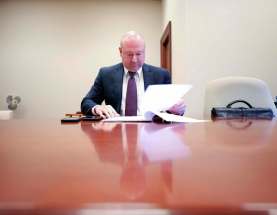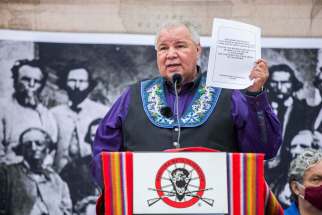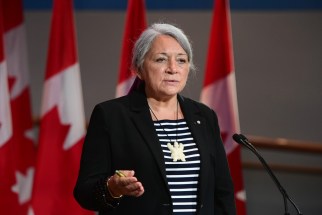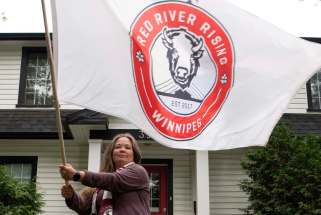Remarkable moment, remarkable days to come Simon named Canada's first Indigenous governor general
Read this article for free:
or
Already have an account? Log in here »
To continue reading, please subscribe:
Monthly Digital Subscription
$0 for the first 4 weeks*
- Enjoy unlimited reading on winnipegfreepress.com
- Read the E-Edition, our digital replica newspaper
- Access News Break, our award-winning app
- Play interactive puzzles
*No charge for 4 weeks then price increases to the regular rate of $19.00 plus GST every four weeks. Offer available to new and qualified returning subscribers only. Cancel any time.
Monthly Digital Subscription
$4.75/week*
- Enjoy unlimited reading on winnipegfreepress.com
- Read the E-Edition, our digital replica newspaper
- Access News Break, our award-winning app
- Play interactive puzzles
*Billed as $19 plus GST every four weeks. Cancel any time.
To continue reading, please subscribe:
Add Free Press access to your Brandon Sun subscription for only an additional
$1 for the first 4 weeks*
*Your next subscription payment will increase by $1.00 and you will be charged $16.99 plus GST for four weeks. After four weeks, your payment will increase to $23.99 plus GST every four weeks.
Read unlimited articles for free today:
or
Already have an account? Log in here »
Hey there, time traveller!
This article was published 06/07/2021 (1616 days ago), so information in it may no longer be current.
After being announced as Canada’s 30th governor general, Mary Simon did something no one in her position had done before: she introduced herself in an Indigenous language.
The Inuk leader used her Inuktitut name, Ningiukadluk, and spoke about her family, the land, the water, and how she was going to bring all of her experiences to the job.
“I can confidently say that my appointment is a historic and inspirational moment for Canada and an important step forward on the long path towards reconciliation,” she added Tuesday, in English.
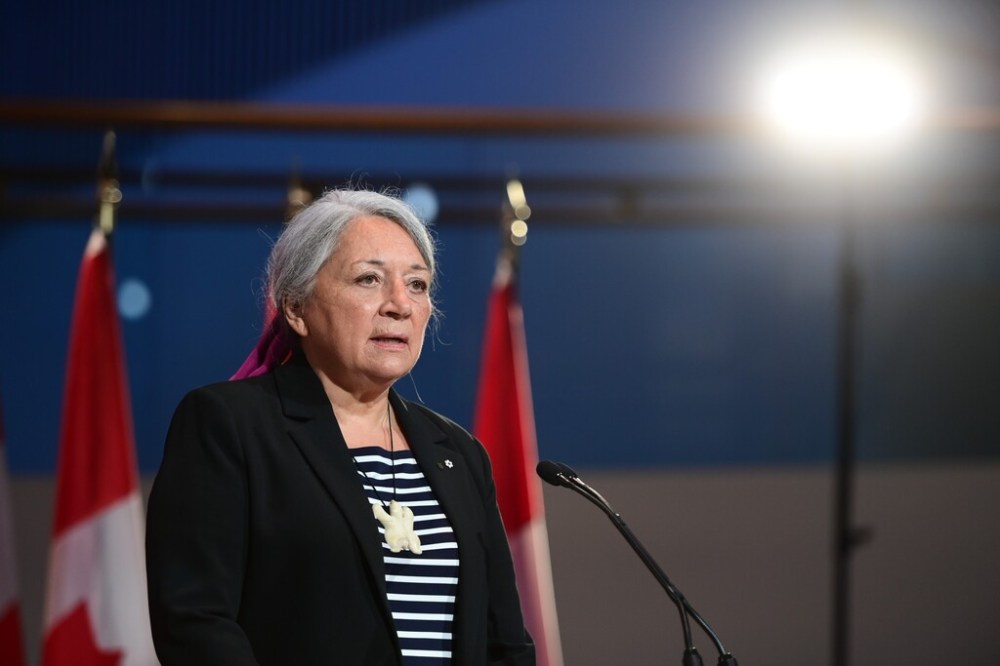
It was a remarkable moment in what has been a remarkable two months, following the discoveries of more than 1,500 unmarked graves at former residential schools, a “sea of orange” on Canada Day, and a national Indigenous-led rebuke of the Catholic Church.
For the first time in history, an Indigenous woman will represent the Crown in Canada.
Simon is immensely qualified. She has worked in media, helped negotiate huge agreements (such as the James Bay Cree hydroelectric project), and voted in twice as president of Inuit Tapiriit Kanatami (the national Inuit political organization).
She grew up on the land; an Inuk from Kuujjuaq, a coastal community in northeastern Quebec. (She has some local ties, too. While her maternal routes are Inuit, her father was a non-Indigenous fur trader from Manitoba, employed by the Hudson Bay Company.)
Her appointment came with a few criticisms, though.
She doesn’t speak French — having been denied being taught the language in her day school experience, Simon said. She promised to learn it.
She is, however, bilingual (Inuktitut is an official language in Nunavut) and expecting Indigenous peoples to learn two colonial languages while not using their ancestral one is incredibly racist.
A more tangible criticism is whether Simon can handle such a tricky position, in a country that has denied, marginalized and refused to define Indigenous and treaty rights but now has a government promising to implement the United Nations Declaration on the Rights of Indigenous Peoples (Bill C-15).
Simon’s track record suggests diplomacy is her strong point. She has handled difficult negotiations in the drive to ratify Canada’s Constitution in 1982, in the 1990s (Charlottetown Accord), and during her time as head of the former Inuit Circumpolar Conference.
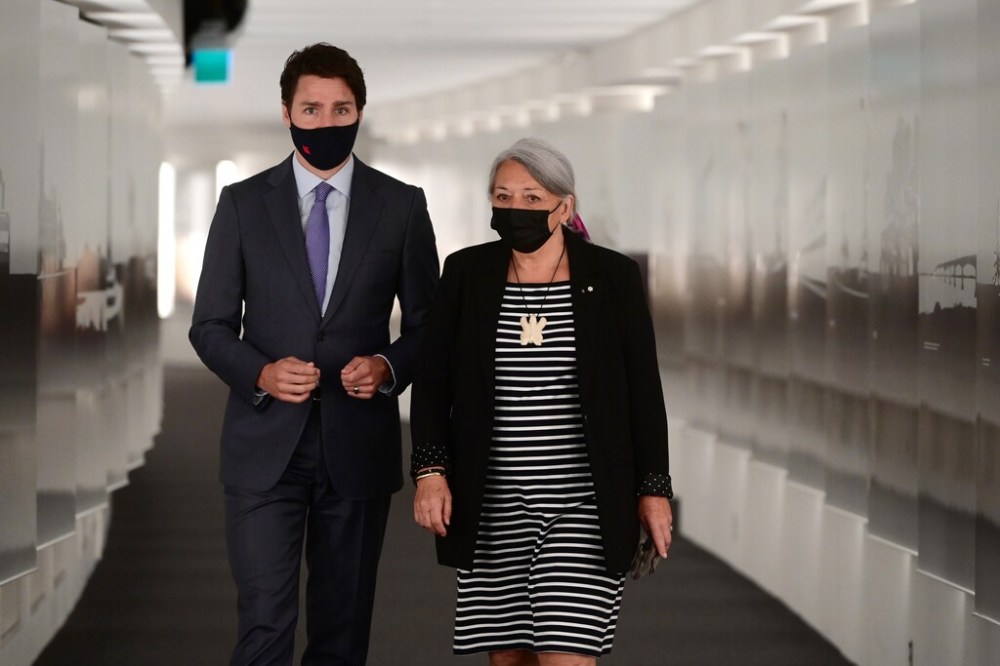
Her most influential part of her resumé, however, is probably her deep Liberal ties. In the government of Jean Chrétien, she was appointed Canada’s arctic ambassador and, later, international ambassador to Denmark.
In politics, relationships mean a lot, and Simon brings a wealth of Liberal connections to the role — and has changed the office already.
To get some perspective: imagine if an Indigenous woman had a powerful role on the side of the Crown when treaties were negotiated or when Canada was implementing racist laws (Indian Act) or when residential schools were operating.
I can tell you, with 100 per cent certainty, things would have turned out differently.
One person in a position normally reserved for ceremonial purposes won’t create deep, everlasting change — or frankly do much to reverse Canada’s ongoing genocide of Indigenous communities — but it is a hopeful step.
Simon’s appointment is also a concrete sign of a fall election.
No sitting government should enter a campaign without a governor general, who must perform critical tasks such as adjudicating on constitutional conflicts, dissolving Parliament, and calling an election. The largest piece of Canada’s imminent race to the polls is in place.
After announcing Simon as the next governor general, the Trudeau Liberals made two huge announcements: recognizing the self-government of the Manitoba Metis Federation and giving jurisdiction over child welfare to Cowessess First Nation (Sask.) where, just weeks earlier, 751 potential unmarked graves were found at the site of a residential school.
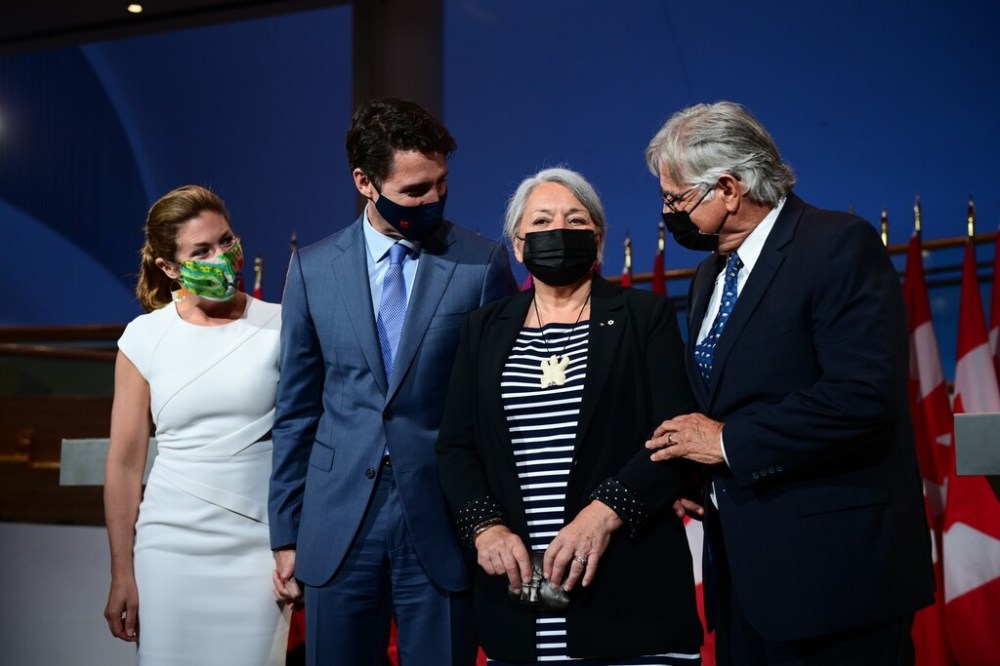
If there was any question the federal Liberals are going to put their record on Indigenous issues on the line this upcoming campaign, Tuesday’s trifecta of announcements secured it.
Soon, another remarkable moment is going to happen: an Indigenous person is going to be asked to dissolve Parliament.
Again: an Indigenous woman is soon going to end Canada’s government.
Let that sink in, and you can see how remarkable Tuesday was.
niigaan.sinclair@freepress.mb.ca

Niigaan Sinclair is Anishinaabe and is a columnist at the Winnipeg Free Press.
Our newsroom depends on a growing audience of readers to power our journalism. If you are not a paid reader, please consider becoming a subscriber.
Our newsroom depends on its audience of readers to power our journalism. Thank you for your support.
History
Updated on Tuesday, July 6, 2021 10:57 PM CDT: Changes first and last graphs.






